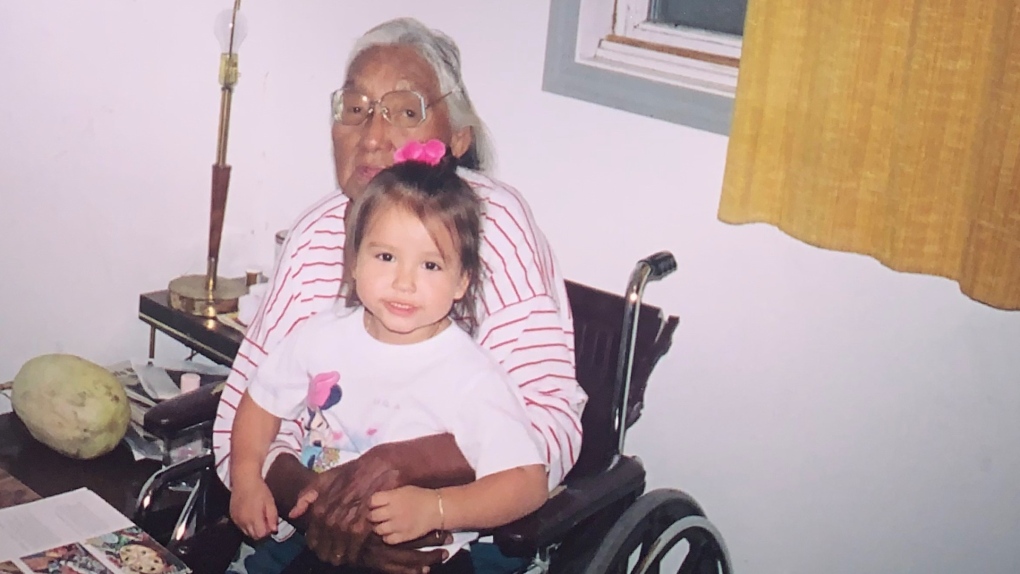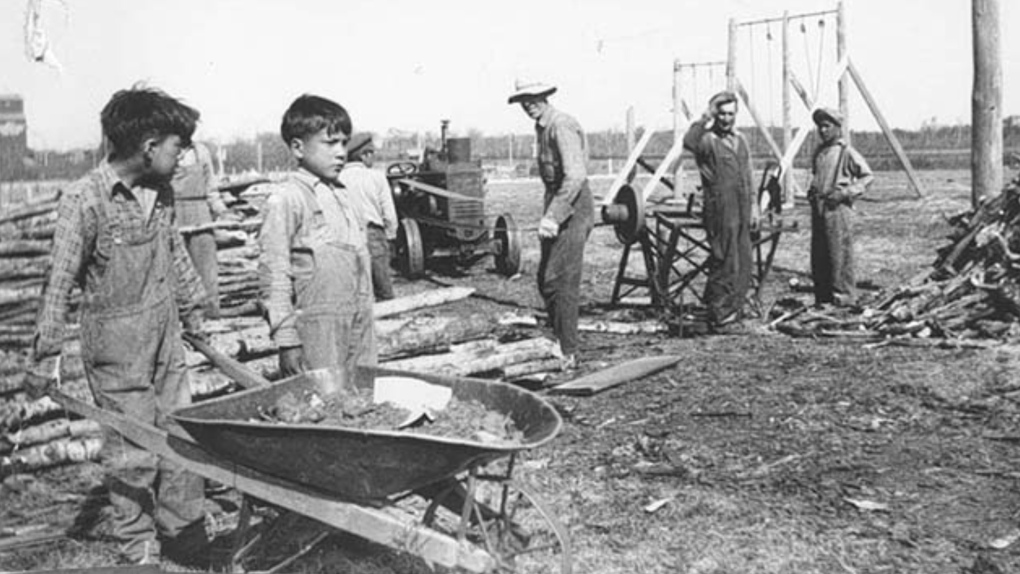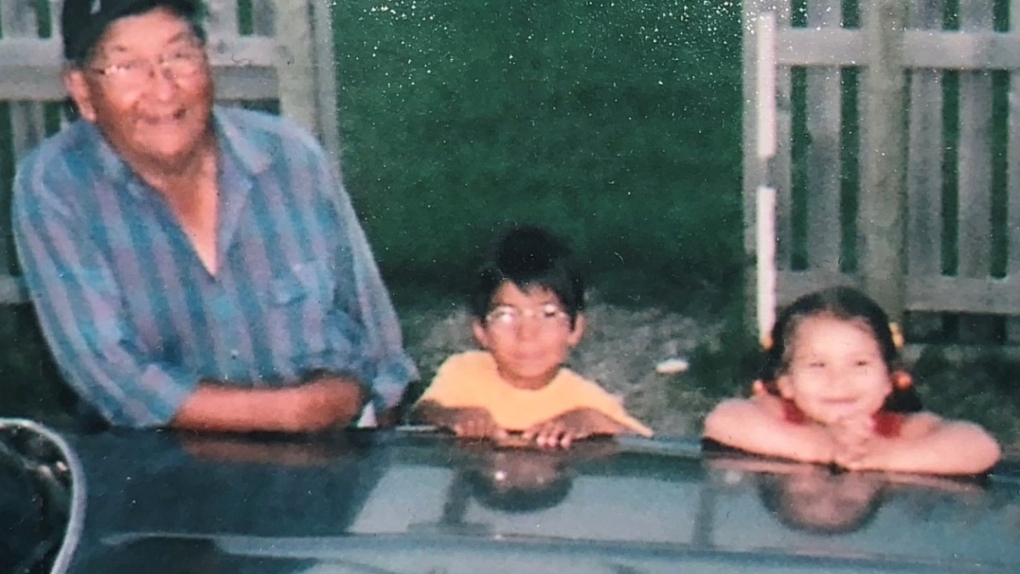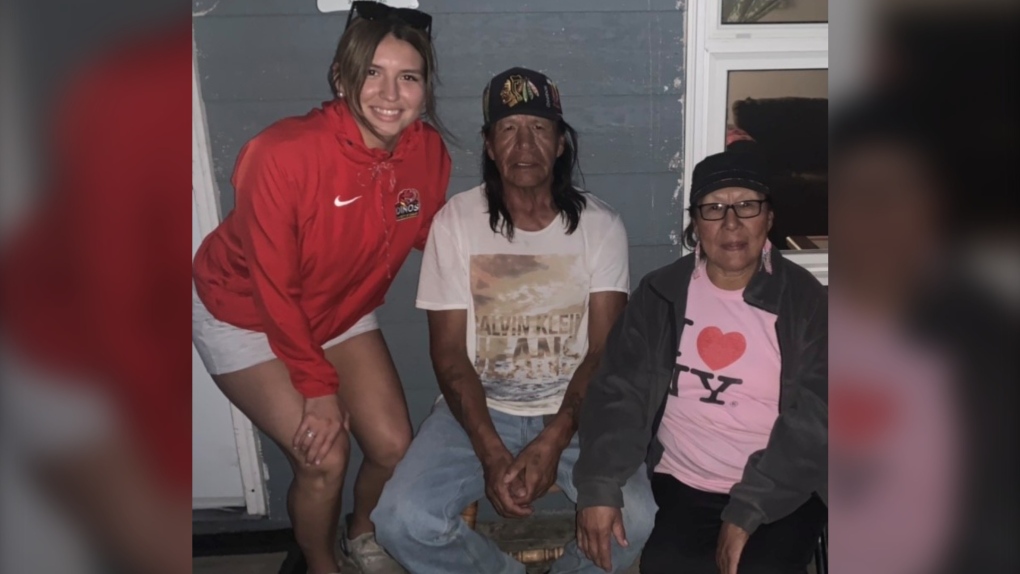'For all of those who never got the chance': Indigenous woman to walk home from residential school site on July 1
 A picture of children who attended the Birtle Residential School around 1957. (Source: The Presbyterian Church in Canada Archives)
A picture of children who attended the Birtle Residential School around 1957. (Source: The Presbyterian Church in Canada Archives)
Come July 1, an Indigenous woman and her community will be going to the site of the former Birtle Residential School in Manitoba and walking home – something her grandparents and hundreds of thousands of Indigenous children across Canada never had the opportunity to do.
When Tréchelle Bunn heard about the 215 remains of Indigenous children uncovered at the site of the former Kamloops Indian Residential School in British Columbia, her heart sank.
Then came the news of the more than 700 unmarked graves found at the site of the former Marieval Indian Residential School in Saskatchewan.
"I think it came as a shock to a lot of Canadians and the world. They are calling them discoveries when they are recoveries. They are the stories that Indigenous people have been telling for generations," Bunn told CTV News.
"They are the stories that my grandparents told, they are the stories that I have heard and that the Canadian state just chooses to ignore."
The news of the recoveries hits close to home for the 21-year-old woman from the Birdtail Sioux Dakota Nation.
 Tréchelle Bunn and her Kunshi Mildred, who attended the Birtle Residential School from the ages of 5 to about 13. (Submitted: Tréchelle Bunn)
Tréchelle Bunn and her Kunshi Mildred, who attended the Birtle Residential School from the ages of 5 to about 13. (Submitted: Tréchelle Bunn)
Tréchelle Bunn and her Kunshi Mildred, who attended the Birtle Residential School from the ages of 5 to about 13. (Submitted: Tréchelle Bunn)
Her grandparents - Kunshi Mildred and Unkan Donald – were both taken from their homes to the Birtle Residential School around the age of five until they were 13.
18 DEATHS RECORDED AT BIRTLE RESIDENTIAL SCHOOL
The Birtle Residential School was started by the Presbyterian Church as a day school in 1883 before turning into a boarding school in 1888.
 A picture of children who attended the Birtle Residential School working around 1948. (Source: The Presbyterian Church in Canada Archives)
A picture of children who attended the Birtle Residential School working around 1948. (Source: The Presbyterian Church in Canada Archives)
A picture of children who attended the Birtle Residential School working around 1948. (Source: The Presbyterian Church in Canada Archives)
Her grandparents survived the school, but the National Centre for Truth and Reconciliation has recorded 18 deaths of children at the school.
The names of those children can be found online at The National Centre for Truth and Reconciliation.
The school closed down in 1970.
"I also grew up hearing their stories of horror and what they faced at the Birtle residential school," Bunn said.
Her Unkan Donald would tell her when he was at the school, he wanted nothing more than to go home.
 Tréchelle Bunn (far right) and her Unkan Donald, who also attended the Birtle Residential School from the ages of 5 to about 13. (Submitted: Tréchelle Bunn)
Tréchelle Bunn (far right) and her Unkan Donald, who also attended the Birtle Residential School from the ages of 5 to about 13. (Submitted: Tréchelle Bunn)
Tréchelle Bunn (far right) and her Unkan Donald, who also attended the Birtle Residential School from the ages of 5 to about 13. (Submitted: Tréchelle Bunn)
"My grandparents, Kunshi Mildred and Unkan Donald, were denied the chance to walk away on their own terms, and some children were just denied the opportunity to walk away at all," Bunn said.
WALKING HOME FOR THOSE WHO NEVER GOT THE CHANCE
On July 1, Bunn will be going to the site of the former residential school for a symbolic 23-kilometre walk back to the Birdtail Sioux Dakota Nation to honour her grandparents who have since passed, and all those who attended residential schools.
"We will be willingly and freely walking away from the school," Bunn said.
"We will be walking home for all of those who never got the chance and for all of those whose only wish was just to go home to their families and they never made it."
Bunn first posted the idea for the walk on Facebook, prompting her community to rally around her. She said around 100 people will be going on the walk, including her Kunshi Pauline and Unkan Terry, who are both survivors of day schools.
 Tréchelle Bunn (left) with her Unkan Terry (centre) and Kunshi Pauline (right) who will be joining her on the walk. Both survived day schools when they were young. (Submitted: Tréchelle Bunn)
Tréchelle Bunn (left) with her Unkan Terry (centre) and Kunshi Pauline (right) who will be joining her on the walk. Both survived day schools when they were young. (Submitted: Tréchelle Bunn)
Tréchelle Bunn (left) with her Unkan Terry (centre) and Kunshi Pauline (right) who will be joining her on the walk. Both survived day schools when they were young. (Submitted: Tréchelle Bunn)
She said the owner of the Birtle Residential School site also reached out to her and gave her permission to start the walk on the property of the former school.
Bunn said the walk is open to anyone who wants to join.
"As we work towards reconciliation, I think it is important that we do involve anyone who would like to join," she said.
"If they can see my generation walking and even my Kunshi walking with me, then they can realize that this is real and this is in the now, it's not a long time ago. This is still affecting Indigenous peoples today."
A national crisis line for residential school survivors is available 24 hours a day, seven days a week at 1-866-925-4419.
Other resources for survivors of residential schools can be found online.
CTVNews.ca Top Stories

Mark Carney reaches out to dozens of Liberal MPs ahead of potential leadership campaign
Mark Carney, the former Bank of Canada and Bank of England governor, is actively considering running in a potential Liberal party leadership race should Justin Trudeau resign, sources tell CTV News.
'I gave them a call, they didn't pick up': Canadian furniture store appears to have gone out of business
Canadian furniture company Wazo Furniture, which has locations in Toronto and Montreal, appears to have gone out of business. CTV News Toronto has been hearing from customers who were shocked to find out after paying in advance for orders over the past few months.
WATCH Woman critically injured in explosive Ottawa crash caught on camera
Dashcam footage sent to CTV News shows a vehicle travelling at a high rate of speed in the wrong direction before striking and damaging a hydro pole.
A year after his son overdosed, a Montreal father feels more prevention work is needed
New data shows opioid-related deaths and hospitalizations are down in Canada, but provincial data paints a different picture. In Quebec, drug related deaths jumped 30 per cent in the first half of 2024, according to the public health institute (INSPQ).
Rideau Canal Skateway opening 'looking very positive'
As the first cold snap of 2025 settles in across Ottawa, there is optimism that the Rideau Canal Skateway will be able to open soon.
Much of Canada is under a weather alert this weekend: here's what to know
From snow, to high winds, to extreme cold, much of Canada is under a severe weather alert this weekend. Here's what to expect in your region.
Jimmy Carter's funeral begins by tracing 100 years from rural Georgia to the world stage
Jimmy Carter 's extended public farewell began Saturday in Georgia, with the 39th U.S. president’s flag-draped casket tracing his long arc from the Depression-era South and family farming business to the pinnacle of American political power and decades as a global humanitarian.
'A really powerful day': Commemorating National Ribbon Skirt Day in Winnipeg
Dozens donned colourful fabrics and patterns Saturday in honour of the third-annual National Ribbon Skirt Day celebrated across the country.
Jeff Baena, writer, director and husband of Aubrey Plaza, dead at 47
Jeff Baena, a writer and director whose credits include 'Life After Beth' and 'The Little Hours,' has died, according to the Los Angeles County Medical Examiner.


































